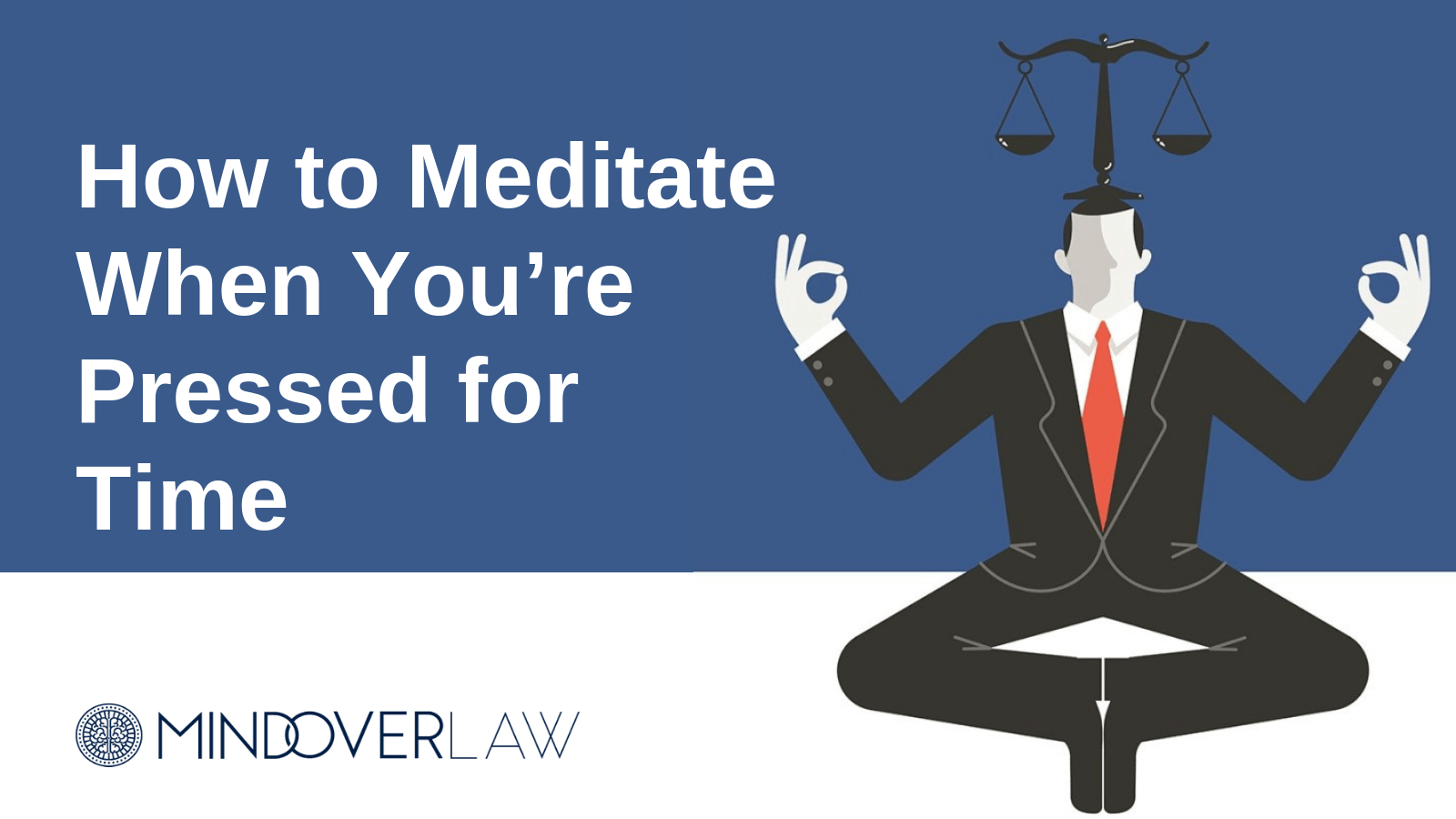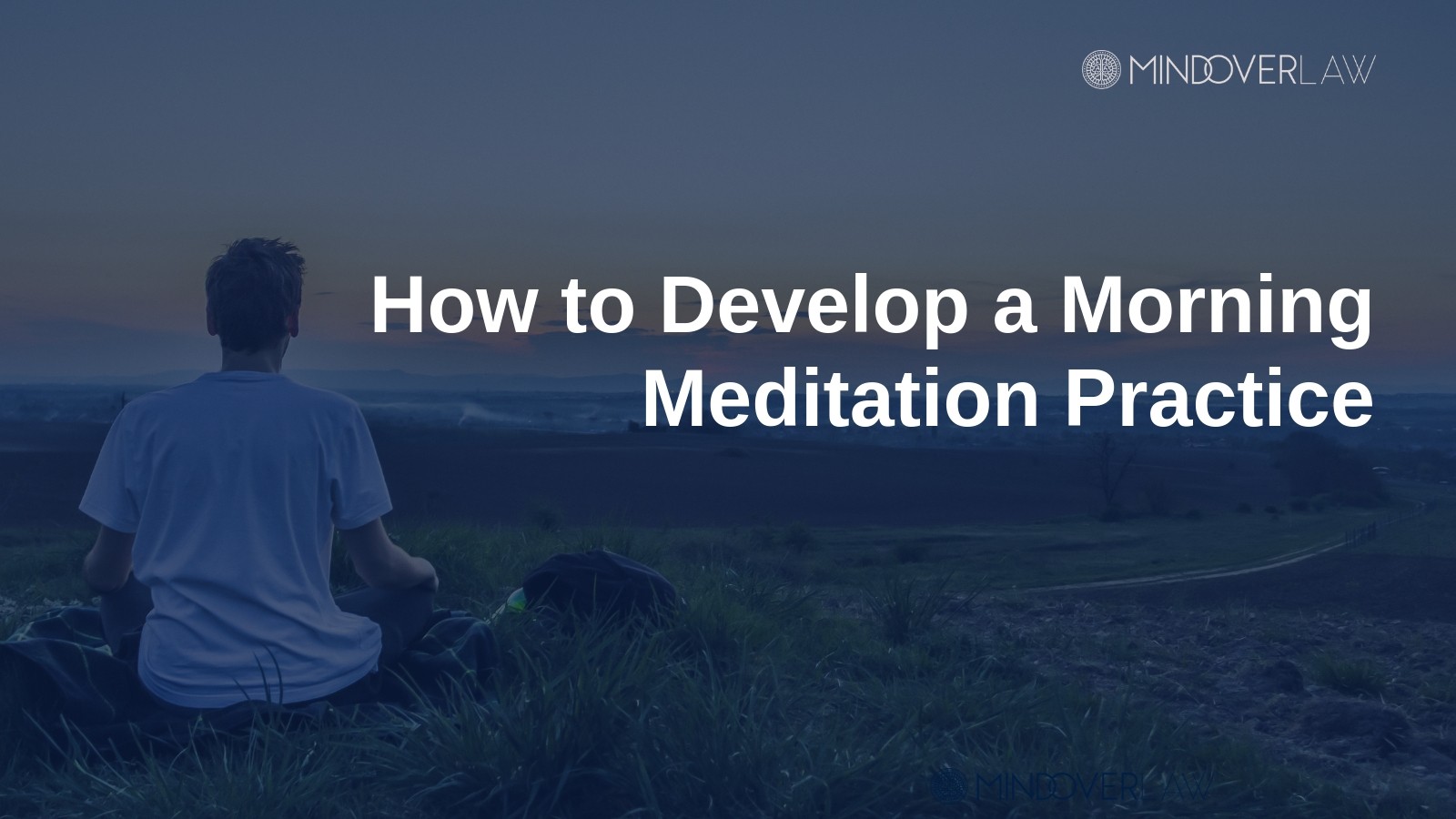Practicing law can be rewarding but challenging. Behind the noble pursuit of helping clients find resolution to their civil and criminal legal matters is the fact that attorneys are overworked, overstressed, and have higher rates of substance abuse, anxiety, and depression than other professions.
Additionally, working as a lawyer requires incredible mental dexterity, sharp critical and analytical thinking skills, impeccable memory, and an abundance of self-assuredness.
Meditation is a way to practice self-care and can improve your ability to concentrate and perform intellectually challenging work with accuracy and precision.
The Need for Meditation Among Lawyers
Experts have called for the need to practice meditation and mindfulness among lawyers including law professors at esteemed universities and in articles for the American Bar Association Journal.
The incidence of mental illness and substance dependency/abuse among attorneys is staggering. Research conducted by the American Bar Association and the Hazelden Betty Ford Foundation in 2016 found that:
- About 28% of licensed, employed attorneys suffer with depression.
- This same study revealed that almost 20% of employed lawyers suffer with symptoms of anxiety.
- Another 21% of attorneys are “problem drinkers”.
The legal profession is one wrought with burnout and stress. Practicing law, managing clients, and competition with other attorneys create a complex working environment that can be draining. Lawyers are tasked with protecting their clients, empathizing with them, analyzing complex laws and precedents, and running the business side of a practice.
What Meditation Can Do for Lawyers
While a career in law is rewarding, it comes with serious risks to one’s health and quality of life. This is why self-care, meditation, and mindfulness are incredibly important for achieving healthy work-life balance and mitigating the effects of stress, anxiety, and depression.
Meditation is a powerful tool that can decrease stress, improve mental clarity, and increase quality of life.
Improved Cognition and Clarity
Meditating regularly will make you a better thinker. Training your mind to block out distractions and unwanted thoughts provides greater focus, which is important for boosting your memory and critical thinking skills.
A regular meditation practice, according to research in neuroscience, can literally alter the physiology of the brain for the better.
Additionally, you can liken meditation to endurance training for your brain. Studies have shown that meditation will lengthen your attention span and improve your memory by helping you to recall fine details of tasks.
Decreased Stress, Anxiety, and Depression
Stress has far-reaching effects. It can raise your blood pressure and disrupt your sleep. It also creates a neurological environment that increases the risks for developing depression and anxiety.
Meditation is scientifically proven to relieve and reduce stress for most people. Regular mindfulness meditation can actually reduce inflammation caused by stress and anxiety. Lowering stress through meditation improves a person’s ability to fight the obsessive, compulsive, and racing thoughts that typically accompany anxiety.
When it comes to fighting depression, meditation literally trains the brain to think more positively. Studies have shown that those who meditate feel less depressed and the neurochemicals released during meditative sessions helps assuage the symptoms of long-term depression.
Increased Empathy
Working as an attorney requires a balance between having empathy for clients and employing iron-clad logic for analyzing the legal issues behind cases. Switching between these two dichotomous traits can be difficult for many lawyers. If you find yourself lacking empathy when you need it most, meditation can help.
A study conducted at Northeastern University in Boston found that those who participated in meditation had higher levels of empathy for others than those who didn’t meditate.
Meditation is a powerful tool that attorneys can utilize to thrive professionally and emotionally. Adopting a regular meditation regimen is essential for combatting stress along with high-risk factors for mood disorders and stress-related health conditions. The cognitive benefits of meditation, including a longer attention span and better memory, are nothing to balk at either.
MindOverLaw provides coaching to attorneys throughout the United States. Our website and blog contain a wealth of resources on meditation, self-care, and de-stressing techniques to help you achieve optimal work-life balance.



